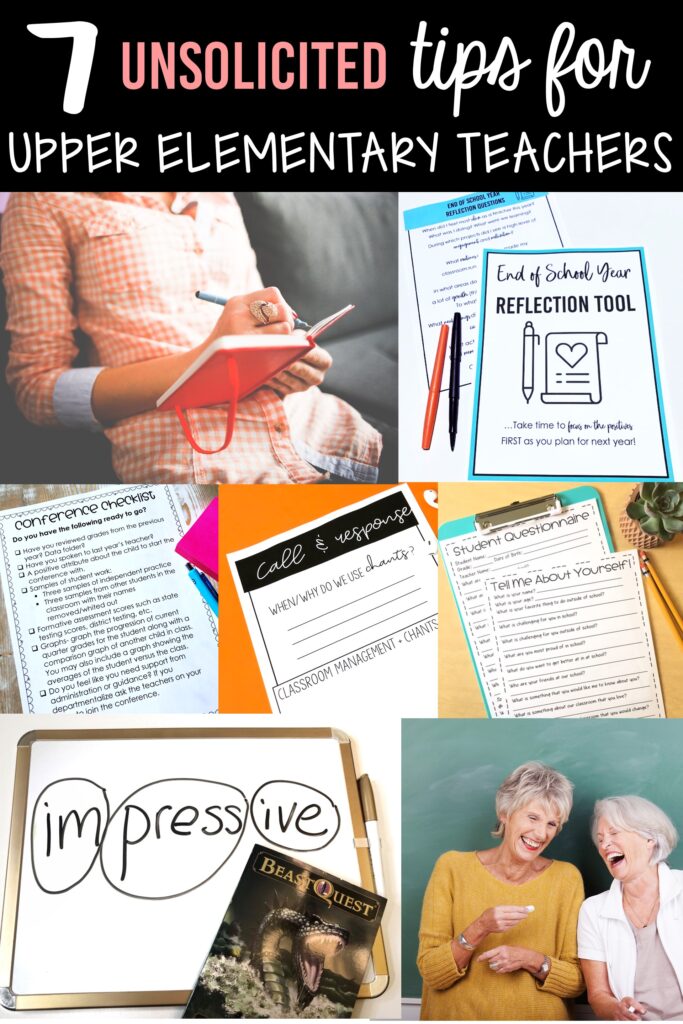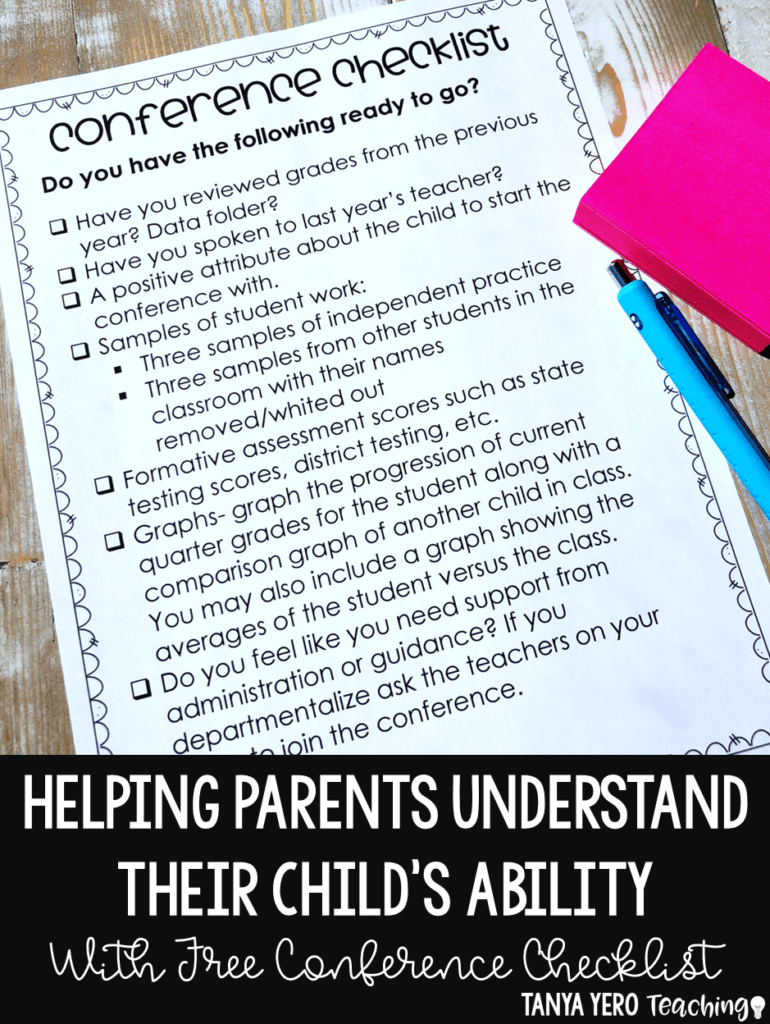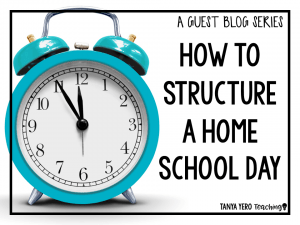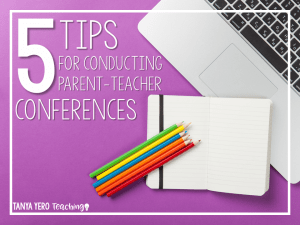Sign up below for your FREE conference checklist! Also be sure and check our other tips and advice from fellow upper elementary educators below!
Orchestrating effective parent-teacher conferences promises an array of positive outcomes for your students, their parents, and your role as an educator.
Conferences are a fantastic opportunity to help parents realistically understand and analyze their child’s ability, but sometimes that can be hard discussion to have. If a child is struggling it can be difficult for parents to come to terms with that fact. Emotions run high and things may become tense. Following these simple tips will help ensure that your parent-teacher conferences reach their optimal level, while giving the parents of your students a clear picture of their child’s ability.
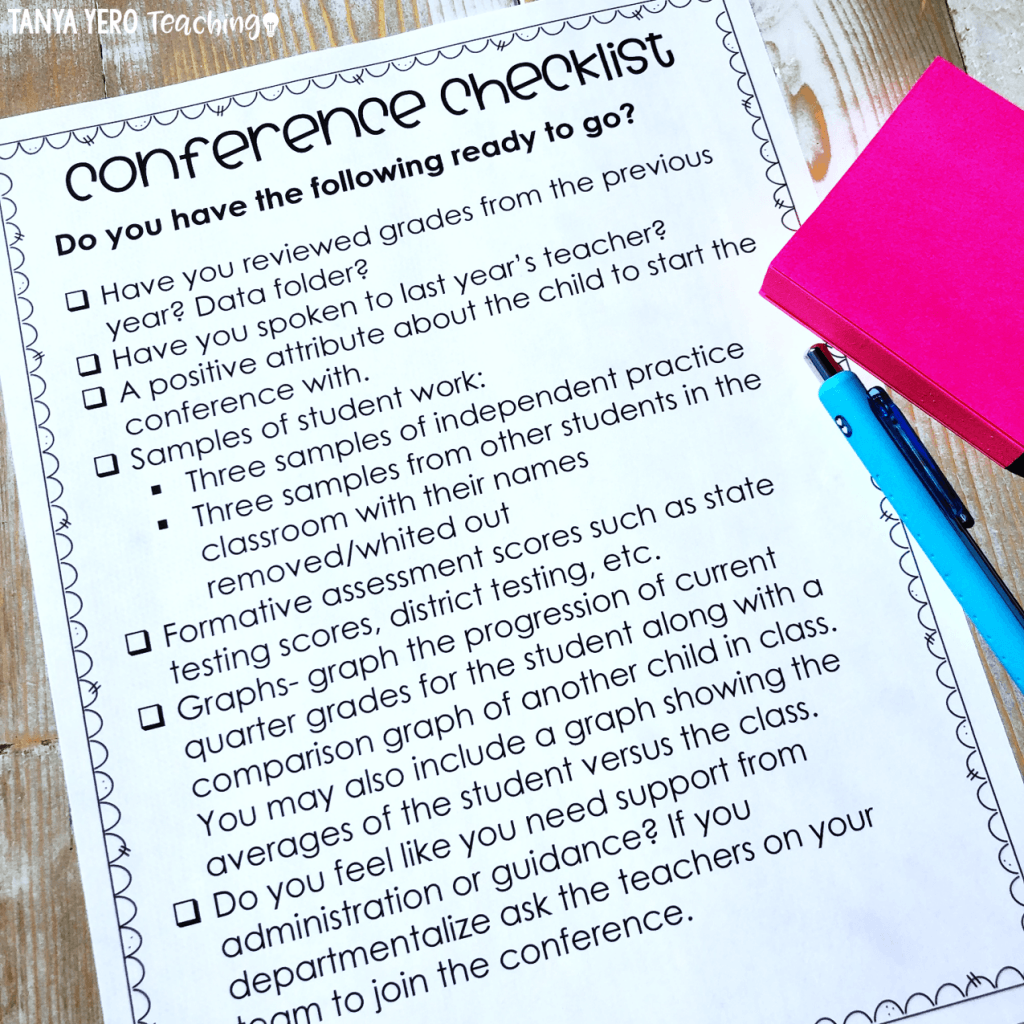
Come prepared with samples of work that the student completed independently.
During a conference, it’s important that parents feel they’ve gained a clear understanding of how their child is performing in the classroom, and recognize areas that need work. Chose samples of each students work which showcase areas of strength, as well as areas that need improvement. This will help provide parents with a clear picture of their child’s progress, strengths, and weaknesses. Providing parents with samples of their child’s work also helps to support specific points you bring up during the meeting.
Bring samples of assessments/standardized testing scores with graphs.
Using written assessment strategies to gain insight on each student’s progress and understanding is likely something you already practice in your classroom. Assessments are excellent tools to utilize during parent-teacher conferences. Bring samples of written assessments, along with routine quizzes and standardized testing scores. To avoid overwhelming parents with a stack of graded assessments to sort through, choose a few key pieces which represent their child’s overall strengths and areas that need improvement. Before the conference, prepare a graph that displays the assessment scores in a simplified data chart.
Compare the test scores of the student vs the class averages of the same assessment.
An effective and unbiased way to display a child’s academic ability is to construct a graph which depicts and compares the test scores of the student to the class average for the same assessment. Providing objective information about their child’s test scores helps the parent understand how their child is performing compared to the rest of the class. This serves as a good opportunity to discuss their child’s strengths and challenges, and to lay out some proactive improvement strategies. Be prepared to answer any questions the parents might have regarding the test scores.
Start the conference with positive attributes.
It is important for parents to feel like their child is seen and supported, they want to know that you like their child and have their best interest at heart. This is why it is important to open each conference on a positive note. Start by discussing strengths. Share a success story, something unique that stands out to you about their child, or any natural talents you’ve seen them display in the classroom. When it comes time to discuss more difficult topics or areas that need improvement, speak tactfully and make it known how important it is to you to help their child to succeed. Discuss strategies for improvements, listen to their input, and let them know you believe in their child.
BE HONEST but gentle.
The purpose of parent-teacher conferences is to give parents an accurate portrayal of their child’s academic performance. Honesty is important even when it feels difficult to bring up areas that require improvements, or while discussing behavioral issues. The key is to approach these topics gently and to establish a mutual understanding with the parent that it is necessary to address these challenges so that you can work to help their child overcome them. Some parents may perceive these topics in a negative or defensive way, but try to remain calm if they do. If things spiral in an unpleasant direction during a conference, it is always best to tactfully shift the subject towards the next topic you had planned to discuss during the meeting, or to respectfully bring the meeting to an end.
Bring back up in the form of administration, guidance counselors, and support staff.
Having a trusted administrator, guidance counselor or support staff sit-in on the conference to act as a facilitator and to give additional support can be beneficial. If there is something specific you plan to discuss with the parent, having another staff member who is familiar with the matter will help the parent feel that they are being offered an unbiased summary. This approach is also particularly helpful if the tone of the conference happens to get heated.
It’s never easy having difficult discussions with parents. Come prepared with data and samples to support you. Prepare in advance. For more tips on parent-teacher conferences check out this blog post.
Use this checklist to prepare yourself for any parent teacher conference! Success! Now check your email to confirm your subscription. YOU'RE SO CLOSE TO FREE CHECKLIST!
PREPARE YOURSELF FOR CONFERENCES
SIGN UP BELOW FOR YOUR FREE CHECKLIST AND MORE!
Check out the advice from my upper elementary teacher friends. Click on the advice to learn more about their tip for a successful school year and grab free reflection tools, checklists, questionnaires, and more!
- Kerry Tracy of Feel-Good Teaching says, “Take the time to reconnect with your calling to get you through the rough patches!”
- Tammy of Tarheelstate Teacher says, “At the end of the school year, reflect on your favorite lessons and experiences. Consciously plan to take what worked into the upcoming school year.“
- Brittany Hege of Mix and Math says, “Incorporate call and response chants as part of your classroom management…It will work for you and is fun for students!”
- Jeanine Schneider of Think Grow Giggle says, “The time spent building student relationships is the best time you will spend all year!”
- Laura Hurley of Reading by Heart says, “Build decoding independence by giving your readers white boards and teaching them to ‘operate on’ words they want to decode. This tip shows you how.”
- Kathie Yonemura of Tried & True Teaching Tools says, “Find your teacher tribe!”
